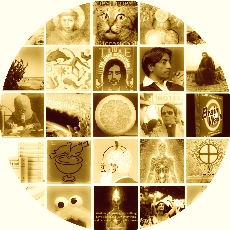- Loaded language
- New words and language are created to explain the new and profound meanings that have been discovered. Existing words are also hijacked and given new and different meaning.
- This is particularly effective due to the way we think a lot though language. The consequence of this is that the person who controls the meaning of words also controls how people think. In this way, black-and-white thinking is embedded in the language, such that wrong-doers are framed as terrible and evil, whilst those who do right (as defined by the group) are perfect and marvellous.
- The meaning of words are kept hidden both from the outside world, giving a sense of exclusivity. The meaning of special words may also be revealed in careful illuminatory rituals, where people who are being elevated within the order are given the power of understanding this new language.
- (http://changingminds.org/techniques/conversion/lifton_thought_reform.htm#Robert Jay Lifton, Lifton’s ”Thought Reform)
- DR-NYSPRÅK.. “Det är mänskligt att fela”. Men för martinusianer betecknar mänskligt det framtida, det vi ännu inte uppnått, eller bara gradvis. Det vi är nu kallas ”jordmänskligt”, som är en blandning av djut och den färdiga människan. Vad kan en sådan semantisk glidning göra för det tänkandet? Också ordet ”kärlek” har fått en mera komplicerad och upphöjd innebörd, som gör att man kanske aktar sig för att använda det. Och gör man det blir det med förbehåll, och ”men jag menar inte”… ”Mänsklig” och ”kärlek”. ”Ondska” kan inte användas, då det inte finns någon ondska, endast okunskap.”Döden” finns inte heller, eftersom allt som finns är liv och rörelse.. Att det kan komplicera kommunikation med andra, som inte är insatta, må vara hänt. Men försvårar det också möjligheterna att kommunicera med sig själv? Att från en observerande position betrakta och trösta sig själv, att ha medkänsla med sig själv?
”Andlig vetenskap”
”Det finns ingen slump” – men menar verkligen vetenskapen detta? Hipp-happ?
”Allt är mycket gott”
”Världsbild”
”Nästakärlek”
”Tyngenergi” eller ”explosionsenergi”
”Att förstå sig själv”=syftar inte på psykologisk el emotionell insikt, främst, men en intellektuell förståelse för ”de tre x-en” t ex
”Djurriket” – där vi lever nu. Detat är en kvalitativ och temporal bestämmelse. I framtiden kommer vi att ha fått ett ”människorike”, som kan vara beläget här också..
”Jordmänniska” eller ”övergångsväsen” - In the novel 1984 George Orwell used the term ”doublethink” to refer to a form of self hypnosis required to hold two contradictory ideas at the same time. In the novel he states…
- ”The power of holding two contradictory beliefs in one’s mind simultaneously, and accepting both of them . . . . To tell deliberate lies while genuinely believing in them, to forget any fact that has become inconvenient, and then, when it becomes necessary again, to draw it back from oblivion for just so long as it is needed, to deny the existence of objective reality and all the while to take account of the reality which one denies — all this is indispensably necessary. Even in using the word doublethink it is necessary to exercise doublethink. For by using the word one admits that one is tampering with reality; by a fresh act of doublethink one erases this knowledge; and so on indefinitely, with the lie always one leap ahead of the truth.”
-
- Taken from Captive Hearts, Captive Minds by Madeleine Tobias and Janja Lalich, p. 94-96 (Hunter House, 1994)
-
- ”Loading the language,” one of Lifton’s characteristics of a totalistic environment (see Chapter 3), is a mechanism of indoctrination and control used in practically every cult. Group slogans and terminology serve as short-cuts for communication; they also stop creative, inquisitive, critical thinking. After leaving, ex-members commonly discover that they are still using group jargon without being aware of it. This ”loaded” language interferes with the ability to think independently and critically and creates barriers to communications with others. Sometimes when a former member unexpectedly encounters the cult’s language, she or he may dissociate or experience a variety of feelings: confusion, anxiety, terror, guilt, shame, or rage.
-
- Most of us have an inner dialogue (called thoughts) that is so automatic we take it for granted. Our thoughts automatically interpret what we experience and feel. If you started to think in German without knowing the language, you would probably be frightened and confused. Similarly, changing the meaning of words produces anxiety and self-doubt, and can be truly thought-stopping and isolating. Because of the cult’s “loaded” language, some ex-members find that they need to make a special effort to relearn their native language.
-
- Cults change the meanings of many common, everyday words and expressions, making communication outside the group painful and confusing. You may find that you no longer have a meaningful vocabulary to understand your own inner world, much less the world around you. Carol B., an ex-member of a mass transformational group, writes:
-
- “My vocabulary was mostly made up of what I call cultese, or cult terminology, basically the group’s own language. It was difficult to verbalize what I was feeling inside because the words were the group’s. All that would come up was the group’s policy on leaving. It was hard enough being confused about what I really believed, but not having the words to explain myself in plain English was worse. The words at my disposal all had cult meanings attached to them and that would start my inner conflict all over again. When I get excited or tired, I still have trouble with vocabulary. I’ll start
- (http://www.icsahome.com/logon/elibdocview.asp?Subject=Taking+Back+Your+Mind%3A+The+barrier+of+%22Loaded%22+Language, 2009-10-20)
Från <https://d.docs.live.net/b243c5d32fc68977/Dokument/Ps-examensarbete/AKTUELLT/Teori/Litteratur-ant/nyspråk_web_091020.docx>
